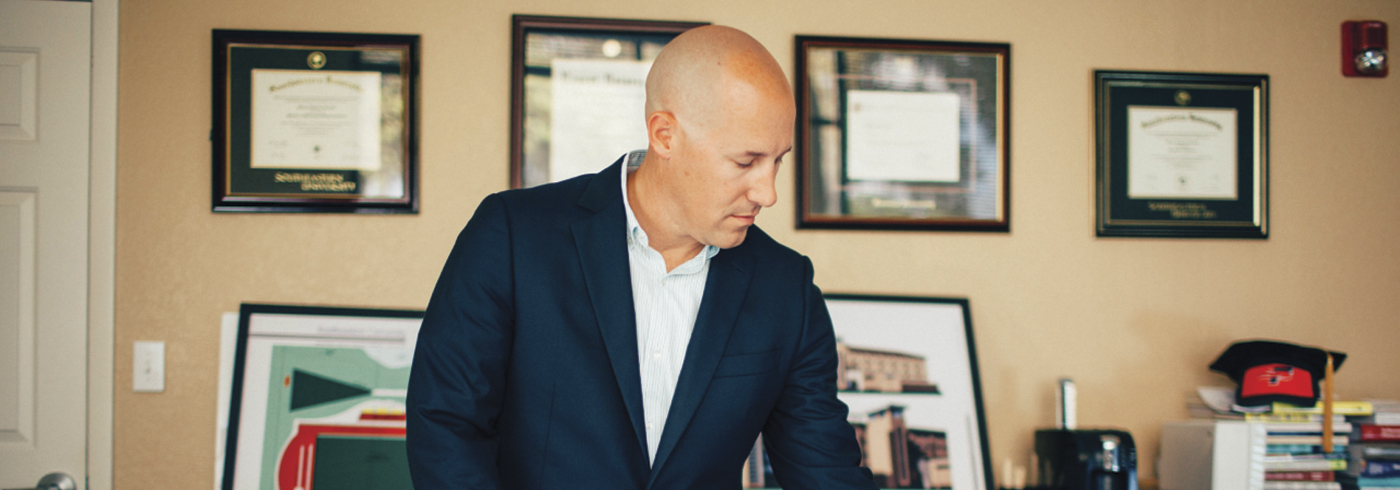Growing Yourself and Your Organization
How a college VP looks at personal and organizational success
This article originally appeared in the October/November 2015 issue of Influence magazine. For more fresh print content, subscribe here.
Brian Carroll is the executive vice president at Southeastern University in Lakeland, Florida, where he has oversight of operations, finances, master planning, facilities/construction and advancement. He holds a Ph.D. in organizational leadership from Regent University; an M.B.A. in management from Southeastern University; and a B.S. in management from Southeastern University. He is also a candidate for the A.L.M. in finance at Harvard University.
Carroll has 20 years' experience in streamlining and reorganizing operations management with Fortune 500 companies, nonprofits and higher education institutions.
Influence:How important are growth and development in your life and organization?
Brian Carroll: Growth is a painful process. If you ever made a New Year's resolution to start working out, you no doubt regretted it the next day as you had aches and pains all over you body. However, after weeks and months of physical exercise, you begin to notice that you feel better - you're more alert and healthy.
Many of us have personal dreams or organizational goals. But these aspirations always come at a cost, whether it is time, talent or treasure. Nothing worth having is free, but the pain and sacrifice of constantly growing is worth the reward. Hebrews 5:12-13 tells us that we should be constantly growing and maturing in our faith.
What resources have you looked to for growing yourself and your organization?
Mentorship is one of the most important resources for achieving and sustaining personal growth. Proverbs 27:17 says, "As iron sharpens iron, so one person sharpens another."
Selecting the right mentor helps to stretch and grow you or your organization. Conversely, selecting the wrong mentor can impede your growth or stifle it all together. Jesus asked in Luke 6:39, "Can the blind lead the blind?"
If you want to climb Mt. Everest, you wouldn't choose a guide whose greatest accomplishment is conquering the rock wall at the state fair. You would research who has the most experience and success and who is the most respected in the field. The quest for the right personal or professional mentor should be the same.
How do you get an organization to buy into change?
Few things are as frustrating as creating change in a stagnant organization. One of the best resources for cultivating change is The Leadership Challenge by James Kouzes and Barry Posner.
It isn't enough to create change. You have to cultivate a culture of change, which requires empowering others to act and carry the vision. Celebrate victories and recognize an individual's excellence when he or she makes contributions toward the organization's vision. This fosters a spirit of community and teamwork that will institutionalize a culture of change.
How do you deal with the possibility of failure?
Failure shouldn't be a fear. It's just another way of learning and gaining experience so that you can become a superior leader. One of the best ways to deal with failure is to ask yourself, "What can I learn from this mistake?"
After you've answered the question, put it behind you and move on. Failure only becomes inhibitive when you fail to learn from it.
Influence Magazine & The Healthy Church Network
© 2024 Assemblies of God

